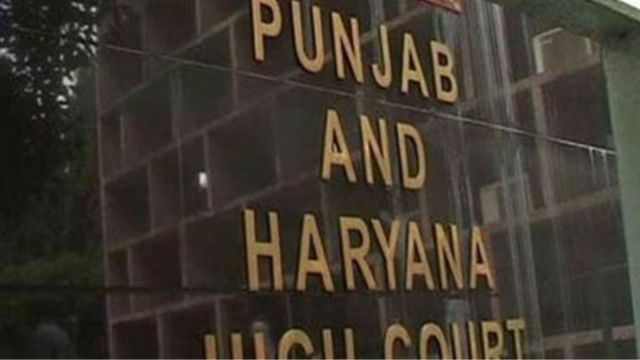Punjab and Haryana HC denies abortion to 14-year-old rape survivor, cites health risks
Minor to get free treatment at PGIMER, Rs 4 lakh interim relief; DNA sample to be preserved for probe
 For the ongoing criminal investigation, the court ordered PGIMER to preserve the DNA sample of the child after birth and hand it over to the investigating officer (Archive)
For the ongoing criminal investigation, the court ordered PGIMER to preserve the DNA sample of the child after birth and hand it over to the investigating officer (Archive)The Punjab and Haryana High Court has refused to allow the termination of pregnancy of a 14-year-old rape survivor, citing her medical condition and the advanced stage of pregnancy.
A single bench of Justice Suvir Sehgal, in an order pronounced Monday (September 22), said the decision was based on a conclusive medical report from PGIMER, Chandigarh. “This Court is not inclined to accept the prayer of the petitioner. A detailed evaluation of the patient has been conducted by experts… The Board has found that the fetus is about 29 weeks and 6 days, but the petitioner has an abnormal pulse rate and blood pressure. The Board has categorically opined that she is medically unfit for termination of pregnancy and has not recommended it,” the judge said.
The case came to court after the girl’s father filed a plea seeking medical termination of her pregnancy. Earlier, an FIR under POCSO and BNS provisions was lodged in August after doctors in Hisar confirmed that she was more than 28 weeks pregnant. Following an earlier court direction, the girl was evaluated by PGIMER’s Permanent Medical Board.
The board found her condition unfit for abortion: “She had abnormal pulse rate and blood pressure… she is medically unfit for MTP. Keeping in view her current medical condition and advanced stage of pregnancy, termination of pregnancy is NOT recommended… If the family desires, the victim may be admitted in PGIMER and provided further medical support till delivery.”
Justice Sehgal noted that while courts have in the past allowed termination beyond statutory limits, the medical findings left little scope to do so in this case. “This Court is not inclined to exercise its discretionary power under Article 226 of the Constitution of India and rejects the prayer for the termination of pregnancy,” the order stated.
Turning to victim support, the court first directed that the girl be admitted at PGIMER, Chandigarh, whenever required, and provided full medical facilities and support until delivery. Her father, who was present in court, consented to this arrangement.
The court also instructed PGIMER authorities to ensure specialist evaluation by both a cardiologist and a psychologist, and to extend post-delivery care if needed. It further clarified that all treatment, consultations, and related facilities must be provided free of cost, with PGIMER ensuring a congenial environment for the minor.
For the ongoing criminal investigation, the court ordered PGIMER to preserve the DNA sample of the child after birth and hand it over to the investigating officer.
On the question of adoption, the court said that if the girl and her parents wish to give up the child, the State of Haryana must take responsibility for rehabilitation, including foster care or adoption, through due legal process. The court underlined that this option would depend entirely on the family’s wishes at the appropriate stage.
The court directed the Haryana State Legal Services Authority to release an interim compensation of Rs 4 lakh to the girl, in line with the state’s 2020 compensation scheme for women victims of sexual assault. This amount would be subject to final adjudication under law.
To safeguard privacy, the court prohibited disclosure of the petitioner’s identity or parentage at any stage of proceedings by the court, police, or any other authority.
It also instructed the Registry to remove the name of the girl’s father from the case title and status on the court’s website, as well as from all interim orders.
The petition was disposed of with these directions, and a copy of the order was sent to PGIMER’s director. The court also placed on record its appreciation for advocate Anmol Partap Singh Mann, who assisted as amicus curiae.
The police investigation under POCSO and BNS provisions remains ongoing.







